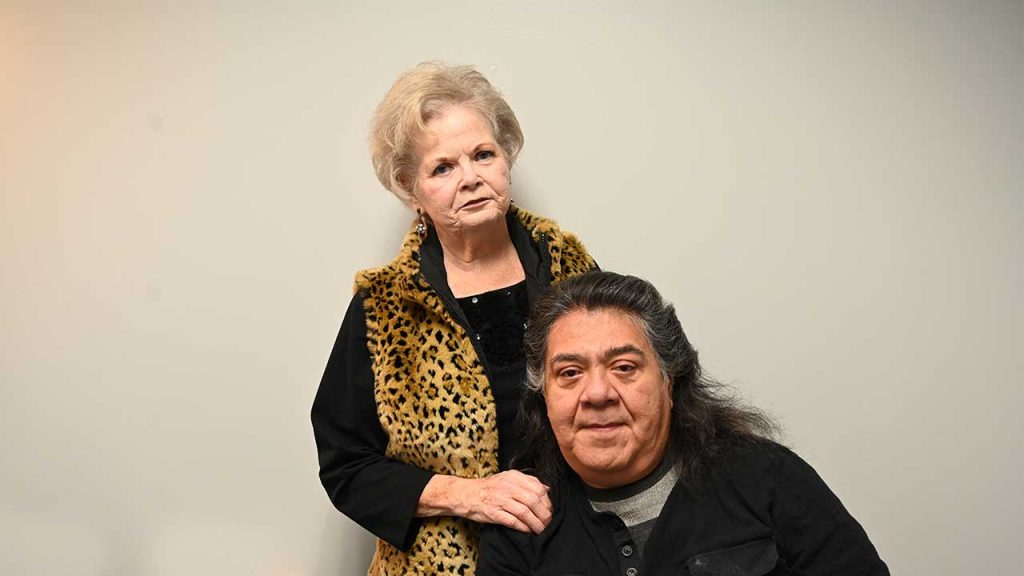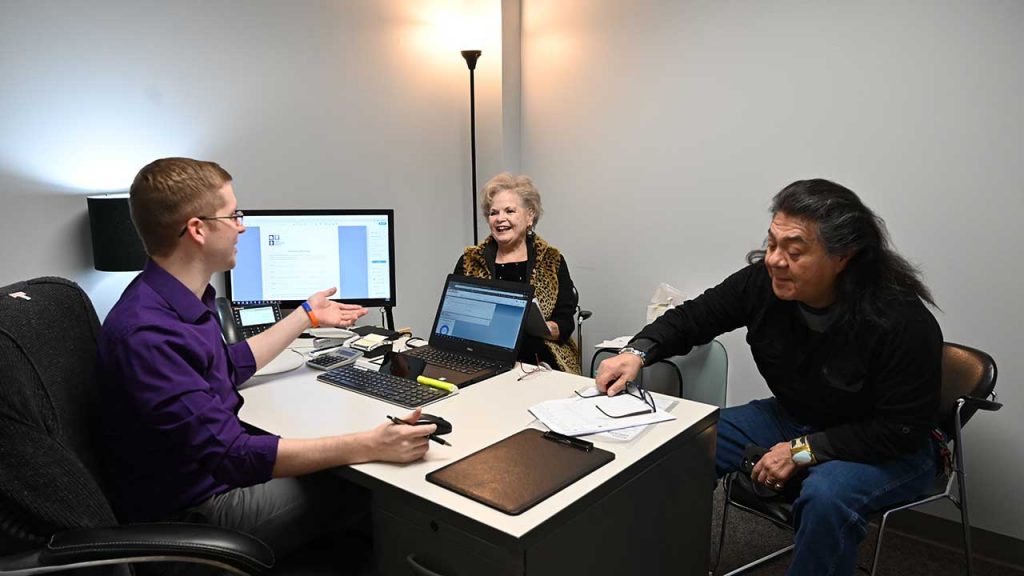
When Sandra and Reuben first met their Economic Mobility caseworker, they were at their wit’s end. They were about to lose their electricity and water. They didn’t know how they would afford his medical supplies. Their finances were, Sandra admits, “overwhelming.”
A lifetime on her own
Having lived her first 60+ years as a single woman working in the insurance industry, money wasn’t something she really thought about.
“It was just something that came in and went out,” says Sandra. She wasn’t rich, but she didn’t really have to struggle either. She bought a house, had nice clothes, and lived within her means — for the most part. “I thought budgets were something for other people,” she adds.
When retirement came, she didn’t think too much about the impact of a fixed income, the loss of employer-provided healthcare, and all the things that can accompany aging. Instead, she threw herself into her church and started volunteering at the Men’s Shelter.
Enter Reuben
Then, she met Reuben. His life had been very different from her own —often a hand-to-mouth existence that left no room for financial education or planning ahead. Still, having spent her whole life alone, their unlikely romance seemed “heaven-sent.” In 2013, they married and began a life together.
Things were good at first. But, with no experience budgeting and few tools to talk about money together, they weren’t equipped to manage an onslaught of injuries, diagnoses, and related costs. Debt piled up. Bills fell behind. Things just kept getting worse. By the time they sought help through Crisis Assistance Ministry, her house was in jeopardy too.
Thanks to your support, a trained caseworker was able to stop the disconnections and keep their power and water flowing. Next, Sandra, Reuben, and their caseworker Randee began to dig into the reality of their finances over the course of several meetings.

“Just putting it all down on paper was eye-opening,” says Sandra. “It really helps to have someone to talk everything through with. Randee listens, makes suggestions, and helps us come up with a plan. Then we can work on it together at home.“
Now, Reuben and Sandra are talking about money, planning their budget, even couponing, as a team. Reuben is making Native American jewelry that honors his heritage while he awaits approval for disability benefits. Over a few months time, they have gone from an urgent crisis to staying current on their bills. They are making hard choices, living within their means, and rebuilding their credit.
“It was hard for me to ask for help because I was used to being the helper,” says Sandra. “But I don’t think we could do this without the things we’ve learned here.“
Moving forward together
There are still struggles. Without health insurance, the cost of Reuben’s diabetic supplies and other medical needs are daunting. Sandra has fallen a few times and required treatment. But, they are moving forward together thanks, in part, to the strategies and knowledge they gained through the Economic Mobility Program.
Your support made their hard work possible. Because of you, Reuben and Sandra remain safely housed and are now reaching for economic stability — even in this time of uncertainty.

You can be the helper in the lives of our neighbors in need by making a gift today. Your gift will matched up to $250,000 by a generous group of individuals now through April 30.
